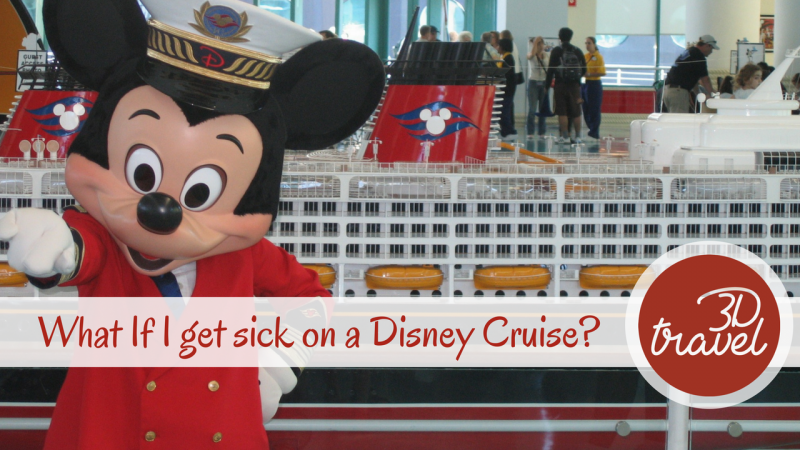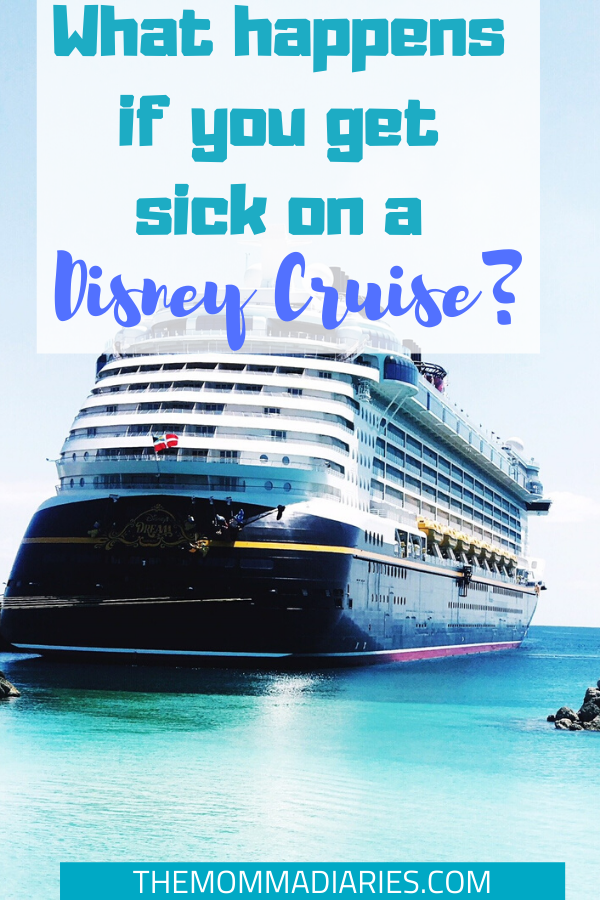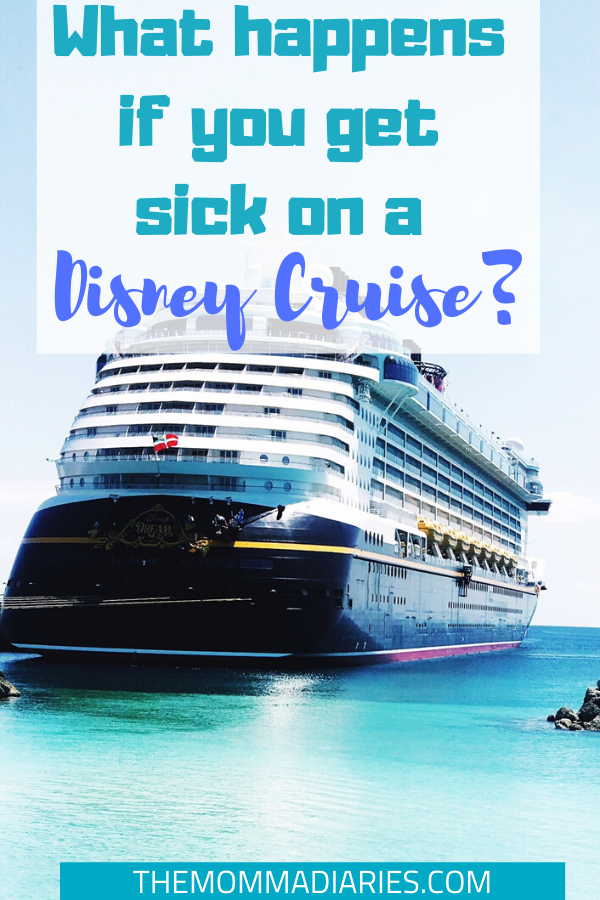Imagine being on a magical Disney Cruise, filled with excitement and adventure, when suddenly you find yourself feeling under the weather. Don’t worry, because even in the midst of pixie dust and princesses, there is a plan in place to take care of you. In this article, we will explore what to do if you happen to fall ill on a Disney Cruise and how the crew will ensure your health and well-being while still allowing you to enjoy your enchanting vacation.
1. Overview of Disney Cruise Health Services
1.1. Medical Staff
Disney Cruise Line prioritizes the health and well-being of its guests and has an experienced team of medical professionals onboard to address any health concerns that may arise during your cruise. The medical staff consists of highly trained doctors and nurses who are available 24/7 to provide medical assistance and ensure the safety of all passengers.
1.2. Medical Facilities
Disney Cruise ships are equipped with state-of-the-art medical facilities to meet any healthcare needs that may arise during your voyage. These medical centers are well-equipped with modern medical equipment and technology to deliver prompt and quality care to guests who require treatment.
1.3. Medical Services
Disney Cruise Line offers a wide range of medical services to address various health issues that guests may face during their cruise. From minor ailments to emergencies, the onboard medical team is prepared to handle a variety of medical conditions. Services provided include general medical consultations, treatment for illnesses and injuries, prescription medications, and even medical evacuation if necessary.
1.4. Access to Health Services
Accessing health services onboard a Disney Cruise ship is made convenient for guests. The medical center is easily accessible, and guests can seek assistance at any time by contacting the ship’s crew. In case of emergencies, the medical staff can be reached via the ship’s intercom system. Safety and well-being are paramount aboard Disney Cruise Line, and the medical staff is always ready to provide the necessary care.
2. Recognizing and Addressing Common Illnesses
2.1. Seasickness
Seasickness is a common ailment that some guests may experience while cruising. Symptoms can include nausea, dizziness, and vomiting. To address seasickness, it is recommended to stay hydrated and maintain a balanced diet. Fresh air and focusing on a fixed point on the horizon can also help alleviate symptoms. Over-the-counter medications such as antihistamines or ginger supplements can provide relief. If symptoms persist, seeking advice from the ship’s medical staff is advisable.
2.2. Motion Sickness
Motion sickness can occur when the body’s sensory organs receive mixed signals about motion, leading to feelings of nausea and discomfort. To address motion sickness, it is important to avoid excessive alcohol consumption and heavy meals. Focusing on the horizon, maintaining good airflow, and taking breaks outdoors can provide relief. Over-the-counter medications, such as scopolamine patches or anti-nausea drugs, may be recommended by the medical staff if symptoms persist.
2.3. Foodborne Illnesses
Foodborne illnesses can sometimes occur when consuming contaminated food or water. Symptoms can range from mild gastrointestinal discomfort to severe illness. It is essential to practice good hygiene and safe food practices, such as washing hands regularly, avoiding raw or undercooked foods, and drinking only bottled or treated water. If symptoms of a foodborne illness are experienced, it is important to report them to the ship’s medical staff for evaluation and treatment.
2.4. Viral Infections
Viral infections can spread easily in close quarters, such as cruise ships. Common viral infections include the common cold, influenza, and norovirus. These infections can cause symptoms such as fever, cough, sore throat, and gastrointestinal disturbances. To minimize the risk of viral infections, regular handwashing and practicing good respiratory hygiene, such as covering coughs and sneezes, are crucial. If symptoms persist or worsen, seeking medical assistance is recommended.
2.5. Respiratory Infections
Respiratory infections, including bronchitis and pneumonia, can occur onboard cruise ships. These infections are often spread through respiratory droplets and close contact with infected individuals. Recognizing symptoms such as cough, shortness of breath, and fever is important. Preventive measures, including frequent handwashing, avoiding close contact with sick individuals, and maintaining good respiratory hygiene, can help reduce the risk. Rest and hydration are recommended for mild cases, while medical consultation should be sought for severe or persistent symptoms.
2.6. Gastrointestinal Issues
Gastrointestinal issues, such as diarrhea and vomiting, can be caused by various factors, including viral infections and foodborne illnesses. To prevent gastrointestinal issues, it is important to practice good hand hygiene, avoid consuming uncooked or undercooked foods, and drink only treated or bottled water. If gastrointestinal symptoms occur, rehydration and rest are essential. Over-the-counter remedies, such as anti-diarrheal medications, may provide temporary relief. Seeking medical evaluation is important if symptoms worsen or persist.

3. Steps to Take When Feeling Unwell
3.1. Self-Assessment
If you start feeling unwell during your Disney Cruise, it is important to first perform a self-assessment of your symptoms. Assess the severity of your symptoms and determine if they are manageable on your own or require medical attention.
3.2. Informing the Ship’s Crew
Once you have assessed your symptoms, it is crucial to inform the ship’s crew about your condition. They are trained to handle medical situations and can provide guidance on the appropriate steps to take.
3.3. Visiting the Ship’s Medical Center
If your symptoms indicate the need for medical attention, it is recommended to visit the ship’s medical center. The medical staff onboard is experienced in diagnosing and treating a range of illnesses and injuries.
3.4. Medical Consultation
During your visit to the ship’s medical center, you will have the opportunity to consult with a healthcare professional. They will assess your symptoms, provide a diagnosis, and discuss treatment options with you.
3.5. Following Medical Advice
After receiving medical advice and treatment, it is important to carefully follow the instructions provided by the healthcare professional. This may include taking prescribed medications, resting, or making necessary lifestyle adjustments to aid in your recovery.
4. Seasickness Prevention and Treatment
4.1. Pre-Cruise Preparations
To prevent seasickness, it is recommended to prepare ahead of time. Start by choosing a cabin location that minimizes motion, such as a midship cabin on a lower deck. Packing over-the-counter seasickness medications, wristbands, or ginger supplements can provide additional support.
4.2. Onboard Strategies
Once onboard, there are various strategies to minimize the effects of seasickness. Spending time on open decks and focusing on the horizon can provide a stable visual reference. Avoiding excessive alcohol consumption and heavy meals can also help reduce the risk of seasickness.
4.3. Over-the-Counter Medications
Over-the-counter medications, such as antihistamines or ginger supplements, can be effective in preventing or alleviating seasickness. It is crucial to carefully follow the instructions and consult with the ship’s medical staff if you have any concerns or questions.
4.4. Prescription Medications
For individuals prone to severe seasickness, prescription medications such as scopolamine patches or anti-nausea drugs may be recommended. It is important to consult with a healthcare professional before the cruise to explore these options and obtain the necessary prescriptions.

5. Motion Sickness Prevention and Remedies
5.1. Identifying Triggers
To prevent motion sickness, it is important to identify triggers that can exacerbate symptoms. These triggers may include reading in a moving vehicle, excessive screen time, or consuming rich or greasy foods.
5.2. Non-Medical Remedies
Non-medical remedies can be effective in managing motion sickness. Fresh air, good ventilation, and maintaining a focus on the horizon can all provide relief. Taking breaks outdoors, engaging in light activities, and avoiding excessive movement can also help.
5.3. Medications for Motion Sickness
Over-the-counter medications, such as antihistamines or meclizine, can be effective in preventing or alleviating motion sickness. These medications should be taken as directed and, if necessary, consult with the ship’s medical staff for additional guidance.
6. Dealing with Foodborne Illnesses
6.1. Recognizing Symptoms
Recognizing the symptoms of a foodborne illness is crucial for early intervention. Symptoms may include nausea, vomiting, diarrhea, abdominal pain, and fever. If these symptoms occur, it is important to take appropriate action to prevent further spread and seek medical evaluation.
6.2. Reporting to Medical Staff
If you suspect a foodborne illness, it is important to report your symptoms to the ship’s medical staff immediately. They can provide guidance, evaluate your condition, and take necessary steps to prevent the spread of the illness to others.
6.3. Hygiene Practices
Maintaining good hygiene practices, such as regular handwashing with soap and water, is essential in preventing foodborne illnesses. Avoiding sharing utensils and dishes, practicing safe food practices, and drinking only treated or bottled water can further reduce the risk.
6.4. Rehydrating and Resting
If you experience symptoms of a foodborne illness, it is crucial to prioritize rest and rehydration. Drink plenty of fluids to replace lost fluids from vomiting or diarrhea. Resting allows your body to recover and fight off the infection more effectively.
6.5. Containment Measures
To prevent the spread of a foodborne illness, it is important to follow the directions of the ship’s medical staff. This may include isolation measures, avoiding communal areas, and practicing good hygiene to prevent transmission to others.

7. Coping with Viral Infections
7.1. Identifying Common Viral Infections
Common viral infections, such as the common cold, influenza, or norovirus, can occur on a cruise ship. Symptoms may include fever, cough, sore throat, body aches, gastrointestinal disturbances, or general malaise. Recognizing these symptoms is important for timely intervention.
7.2. Isolation and Containment
If you suspect a viral infection, it is important to isolate yourself to minimize the spread to others. Follow the instructions of the ship’s medical staff regarding containment measures and the appropriate use of masks or personal protective equipment.
7.3. Hygiene Measures
Practicing good hygiene measures, including regular handwashing with soap and water, covering coughs and sneezes, and avoiding close contact with others, is crucial in preventing the spread of viral infections.
7.4. Over-the-Counter Treatments
Over-the-counter treatments can help manage symptoms of common viral infections. These may include pain relievers, cough suppressants, or decongestants. However, it is important to consult with the ship’s medical staff before taking any medications.
7.5. Seeking Medical Assistance
If symptoms persist, worsen, or if you experience severe symptoms, it is advisable to seek medical assistance from the ship’s medical staff. They can evaluate your condition, provide appropriate treatment, and offer guidance to ensure your well-being.
8. Managing Respiratory Infections
8.1. Recognizing Symptoms
Recognizing symptoms of respiratory infections, such as cough, shortness of breath, fever, and chest congestion, is important for early intervention. Monitoring your symptoms and seeking medical assistance can help prevent the worsening of the infection.
8.2. Preventive Measures
To minimize the risk of respiratory infections, it is important to practice good respiratory hygiene. Cover your mouth and nose with a tissue or your elbow when coughing or sneezing. Regular handwashing with soap and water, avoiding close contact with sick individuals, and maintaining good airflow in your cabin are essential preventive measures.
8.3. Rest and Hydration
For mild respiratory infections, rest and hydration are important for recovery. Drink plenty of fluids to stay hydrated and allow your body to combat the infection effectively. Resting helps conserve energy and supports the healing process.
8.4. Medications for Respiratory Infections
Over-the-counter medications, such as pain relievers, cough suppressants, or decongestants, can provide relief for respiratory infection symptoms. However, it is crucial to consult with the ship’s medical staff for guidance on the appropriate medications and their dosages.
8.5. Consultation and Follow-Up
If symptoms persist, worsen, or if you have concerns about your respiratory infection, seek medical consultation from the ship’s medical staff. They can further evaluate your condition, provide necessary treatment or prescriptions, and offer follow-up guidance to monitor your progress.

9. Handling Gastrointestinal Issues
9.1. Identifying Symptoms
Gastrointestinal issues, such as diarrhea, vomiting, or abdominal pain, can be unpleasant experiences during a cruise. Identifying these symptoms is important for early intervention and preventing the spread to others.
9.2. Hygiene Practices
Practicing good hygiene measures is essential in preventing gastrointestinal issues. Regular handwashing with soap and water, especially after using the restroom and before eating, is crucial. Avoid sharing utensils, dishes, and food with others to minimize the risk of transmission.
9.3. Rest and Rehydration
If you experience gastrointestinal symptoms, prioritize rest and rehydration. Drink plenty of fluids to replace lost fluids from vomiting or diarrhea. Resting gives your body the opportunity to recover and heal.
9.4. Over-the-Counter Remedies and Prescription Medications
Over-the-counter remedies, such as anti-diarrheal medications, can provide temporary relief for gastrointestinal symptoms. However, it is important to consult with the ship’s medical staff before taking any medications. In severe cases, prescription medications may be necessary.
9.5. Medical Evaluation
If gastrointestinal symptoms persist, worsen, or if you have concerns about your condition, seek medical evaluation from the ship’s medical staff. They can assess your symptoms, provide necessary treatment, and ensure your well-being.
10. Tips for a Healthy and Enjoyable Cruise Experience
10.1. Personal Hygiene
Maintaining good personal hygiene is crucial for a healthy and enjoyable cruise experience. Wash your hands regularly with soap and water, especially before meals and after using the restroom. Use hand sanitizers when soap is not readily available.
10.2. Safe Food Practices
Ensure your food safety by consuming cooked foods thoroughly and avoiding raw or undercooked items. Drink only bottled or treated water. Make informed food choices and carefully assess the handling and preparation practices at dining locations.
10.3. Regular Handwashing
Regular handwashing is one of the most effective ways to prevent the spread of illnesses. Wash hands with soap and water for at least 20 seconds, ensuring all surfaces are properly lathered and rinsed. Practice hand hygiene after using the restroom, before eating, and whenever hands are visibly dirty.
10.4. Proper Use of Hand Sanitizers
Hand sanitizers can supplement handwashing when soap and water are unavailable. Use hand sanitizers with at least 60% alcohol content, apply a sufficient amount to cover all surfaces of the hands, and rub until dry. Remember that hand sanitizers are not a substitute for proper handwashing.
10.5. Staying Active and Well-Rested
Staying active and getting enough rest are important for maintaining good health during your cruise. Engage in onboard activities, explore the ship, and enjoy the various entertainment options. Ensure you prioritize quality sleep and rest to recharge and support your overall health.
By following these comprehensive guidelines and seeking appropriate medical assistance when needed, you can have a healthy and enjoyable Disney Cruise experience. Remember to prioritize self-care and make informed choices to ensure your well-being throughout your voyage.

Hi, I’m Mike, the author of Ocean Bliss Journeys. Thank you for visiting 🙂

